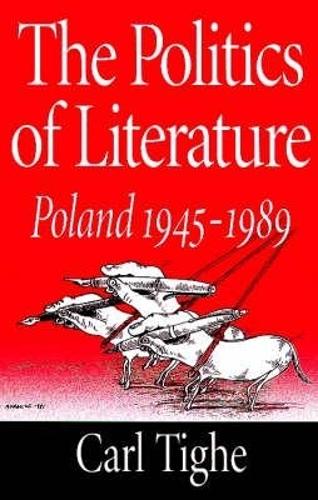
The Politics of Literature: Poland, 1945-89
(Hardback)
Publishing Details
The Politics of Literature: Poland, 1945-89
By (Author) Carl Tighe
University of Wales Press
University of Wales Press
3rd August 1999
United Kingdom
Classifications
Tertiary Education
Non Fiction
Far-left political ideologies and movements
European history
891.850904
Physical Properties
Hardback
304
Width 135mm, Height 216mm
717g
Description
In Poland, literature is politics by other means; writers are the real national leadership. The history of post-war Polish literature is also very much the story of opposition to communism. In this pioneering and stimulating study of post-war Polish intellectual history, Carl Tighe analyses the complex interface between politics and literature under communism. It is an analysis which shows clearly that it was not the Catholic Church but the writers of the lay left who were the most consistent critics and opponents of Stalinism. This innovative study draws on the working lives of more than 200 writers, but its focus is on the wily creativity and turbulent careers of a handful of internationally renowned figures: novelist Jerzy Andrzejewski, critic Jan Kott, science-fiction writer Stanis aw Lem, diarist Kazimierz Brandys, journalist Ryszard Kapu ci ski, novelist Tadeusz Konwicki, and historian Michnik. This portrait of a generation depicts vividly the dilemmas faced by writers in twentieth-century Poland. Between them they ran the gamut of European political experience: military dictatorship, invasion, occupation, resistance, 'liberation' by the Red Army, Stalinism, revisionism, opposition, imprisonment, anti-Semitic purges, exile, emigration, Solidarno, martial law, the collapse of communism, the advent of the free market and democracy. They challenged Stalinism, but yet clung to the ideal of 'socialism with a human face'. This challenging study explores the literature of post-war Poland and examines the social and political ambitions of the new intellectual leadership. It is a timely analysis of the culture of a country whose experience of recent history has been very different from that of western Europe.
Reviews
'The Politics of Literature is described on the jacket as a 'study of Polish intellectual history' which 'analyses the complex interface between politics and literature under communism'. This book is actually much more, since in addition to the to the 'interface' it provides a detailed political history of the era, based on secondary sources, and also a comprehensive account of developments in Polish literature. Hence it could serve as a textbook on both literature and history/politics courses. Its mass of detail makes it also useful as a reference work.' Modern Language Review
Author Bio
Carl Tighe lived in Poland for several years. After teaching first at Wroc aw University, he was one of the first appointments to the new University of Gdansk. In 1980-1, he worked at the Jagiellonian University in Krakow and helped run a small radio monitoring service for Solidarno. He is the author of Gdansk (Pluto Press, 1990) and Rejoice! and Other Stories (Cape, 1992).
